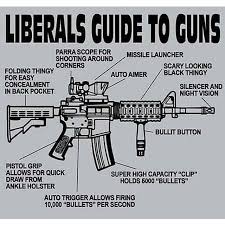NewsVine_Mariyam
Platinum Member
Logically this makes sense but when using a firearm for defense you want it to be effective
By MARGOT SANGER-KATZ and QUOCTRUNG BUI MARCH 27, 2019
In Boston from 2010 to 2015, there were 221 gun homicides.
Research suggests that one change could have lowered that number by 40 percent: smaller bullets.
A study last year, published in JAMA Network Open, examined the type of weapon used in every fatal and nonfatal shooting in the city. It found that — regardless of the time of day, the number of wounds or the circumstances of the crime — the size of the bullet affected which gunshot victims lived and which ones died.
At the center of the debate about gun control lies the question of whether the availability of deadly weapons increases the seriousness of crime. Critics of gun control contend it doesn’t. As the popular bumper sticker argues: “Guns don’t kill people. People kill people.” The study set out to test that slogan -- and found it wanting.
“The type of weapon matters,” said Philip Cook, an emeritus professor of public policy at Duke University, and one of the study’s co-authors.
If all the shooters in Boston had used the types of guns in circulation with the biggest bullets, the homicide rate could have been 43 percent higher, the researchers calculated recently, even with the same people committing exactly the same crimes.
For shootings in which there is a recorded caliber. Caliber classification determined by researchers.
Over recent decades, the size of bullets fired by the typical handgun has increased. Changes in design have made it easier to fire big bullets from concealable weapons, and manufacturers have marketed more powerful guns as better tools for self-defense. In the 1970s and 1980s, the guns most commonly used in crime tended to be revolvers or small, inexpensive pistols that fired .22-caliber rounds, so-called for their 0.22-inch diameter.
People Kill People. But the Bullets Seem to Matter.
By MARGOT SANGER-KATZ and QUOCTRUNG BUI MARCH 27, 2019
In Boston from 2010 to 2015, there were 221 gun homicides.
Research suggests that one change could have lowered that number by 40 percent: smaller bullets.
A study last year, published in JAMA Network Open, examined the type of weapon used in every fatal and nonfatal shooting in the city. It found that — regardless of the time of day, the number of wounds or the circumstances of the crime — the size of the bullet affected which gunshot victims lived and which ones died.
At the center of the debate about gun control lies the question of whether the availability of deadly weapons increases the seriousness of crime. Critics of gun control contend it doesn’t. As the popular bumper sticker argues: “Guns don’t kill people. People kill people.” The study set out to test that slogan -- and found it wanting.
“The type of weapon matters,” said Philip Cook, an emeritus professor of public policy at Duke University, and one of the study’s co-authors.
If all the shooters in Boston had used the types of guns in circulation with the biggest bullets, the homicide rate could have been 43 percent higher, the researchers calculated recently, even with the same people committing exactly the same crimes.
For shootings in which there is a recorded caliber. Caliber classification determined by researchers.
Over recent decades, the size of bullets fired by the typical handgun has increased. Changes in design have made it easier to fire big bullets from concealable weapons, and manufacturers have marketed more powerful guns as better tools for self-defense. In the 1970s and 1980s, the guns most commonly used in crime tended to be revolvers or small, inexpensive pistols that fired .22-caliber rounds, so-called for their 0.22-inch diameter.
People Kill People. But the Bullets Seem to Matter.


